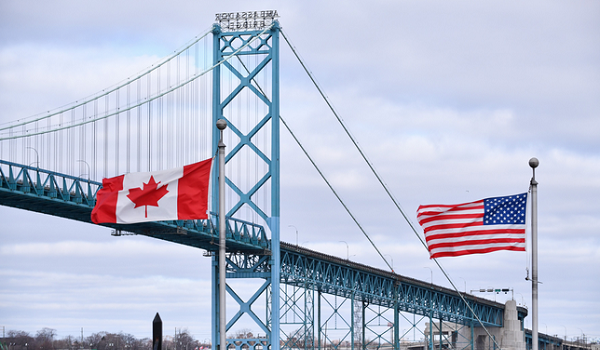Canada rank 5th among the countries in refugee claims
Despite its geographic isolation from the rest of the world save for the United States, Canada was the fifth largest recipient country of asylum seekers last year.
According to the latest global trends report released Thursday by the United Nations High Commissioner for Refugees (also known as the United Nations Refugee Agency), Canada received 146,800 new claims in 2023, up from 94,000 the year before. Only four countries were ahead: the U.S. (1.2 million), Germany (329,100), Egypt (183,100) and Spain (163,200).
It was the first time Canada made it into the top five in at least six years. It was ranked ninth in 2022 and was not even among the top 10 during the pandemic in 2020 and 2021, when the country’s border was generally closed to foreign nationals.
The Immigration and Refugee Board of Canada’s latest statistics show that 46,693 claims were already made between January and March in 2024. At that pace, it could reach a new high around 186,000 by the end of this year.
Following a ban last year preventing irregular migrants from seeking asylum through the U.S. land border, the Canadian government in February slapped visa requirements on Mexican travellers, who accounted for the largest number of claims in the country.
But it appears Canada can’t stay immune from the global refugee crisis, which saw the number of forcibly displaced people surging to 117.3 million in 2023 from 108.4 million in 2022. As of May, the UN agency said the number has already risen to 120 million, which is the size of the population of Japan.
The growing displacement — the 12th consecutive annual increase — can be attributed to new conflicts and wars popping up around the world as well as a failure to resolve long-standing crises, said the agency.
“Behind these stark and rising numbers lie countless human tragedies,” said Filippo Grandi, the UN High Commissioner for Refugees, in a statement.
“It is high time for warring parties to respect the basic laws of war and international law. The fact is that without better co-operation and concerted efforts to address conflict, human rights violations and the climate crisis, displacement figures will keep rising, bringing fresh misery and costly humanitarian responses.”
The agency said the ongoing conflict in Sudan alone has seen 10.8 million people being uprooted. Vicious fighting in the Democratic Republic of Congo and Myanmar forced millions of others to flee their homes for safety.
In the Gaza Strip, up to 1.7 million people or 75 per cent of the population had been displaced by the end of last year, while Syria remains the world’s largest displacement crisis, with 13.8 million of the population displaced in and outside of their country.
The vast majority of refugees are hosted in countries near their own, with 75 per cent staying in low- and middle-income countries that together produce less than 20 per cent of the world’s income.
The report does offer a glimmer of hope at what could be accomplished through international collaboration to address the global crisis.
Worldwide, more than five million internally displaced people and one million refugees managed to return home in 2023, with 154,300 being resettled for a new life in other countries.
Canada alone opened the door to almost a third or nearly 51,100 of those refugees, including 16,600 from Afghanistan, 9,200 from Eritrea, 8,400 from Syria and 4,300 from Somalia.
“Refugees — and the communities hosting them — need solidarity and a helping hand,” said Grandi. “Solutions are out there … but it takes real commitment.”
This article was first reported by The Star












